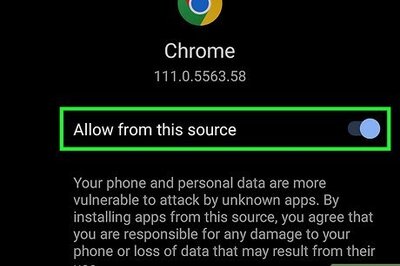
views
Google's performance in the smartphone industry has been anything but stellar with its Pixel range failing to get the limelight, especially in terms of sales. However, despite the unsatisfying performance, Google is not ready to give up on it with CEO Sundar Pichai confirming that the company will continue to work on smartphone hardware. In a free-wheeling interview with The Verge, Pichai candidly spoke about everything from the company's hardware strategy to the COVID-19 response.
“The last couple of years have been a major integration phase for us because we’ve combined our Google hardware efforts with Nest. We absorbed the mobile division of HTC. So it’s been a lot of stitching together. And we have a wide product portfolio, too. So it’s definitely been a building phase. We’re super committed to it for the long run," Pichai said.
Pichai also revealed the fact that Google is facing problems with creating hardware and gave a synopsis on the company's approach to hardware design. "Hardware is hard. And it definitely has components, which take real-time to get it right, thinking about underlying silicon or display or camera or any of those tacks. And so we are definitely investing in it, but that timeline. I think we’ve made a lot of progress," Pichai said.
While Pichai appeared to sidestep The Verge's question on the performance of the latest Pixel phones he did, however, mention that the smartphones have made a lot of progress since its inception. "Pixel 3A last year was one of our highest NPS-rated products ever, and definitely even benchmarked outside. So to me, it’s a clear indication we have made a lot of progress.”
Talking about how the Coronavirus pandemic has impacted Google Maps, Pichai didn't divulge into any numbers but revealed there was a considerable drop-off, mainly because travel was restricted due to the COVID-19 lockdown all over the world. However, Pichai mentioned that things are slowly returning to normal as more users are using Google Maps for local information, services and other information.
Responding to a report that Google has cut back on diversity efforts in order to avoid conservative backlash, Pichai didn't address the programs being cut but reiterated that diversity is a "foundational value" for Google. "Given the scale at which we build products and the fact we do it locally for our users, we are deeply committed to having that representation in our workforce. What we are doing in the company is constantly at our scale. We look at that first — see what works, what we can scale up better. All I can say is we probably have more resources invested in diversity now than at any point in our history as a company," he said.
When asked about the company's plans on both Google Meet and Google Chat, especially at a time when people need them more than ever, Pichai said that Google is scaling them up so that people at large can use them. "COVID has blurred the lines between consumer and enterprise, and people are using products in all kinds of contexts. And so definitely, we are using it as an opportunity to make Google Meet and Google Chat, scale it up and make it more available," Pichai said.
Pichai also touched upon on Google's efforts as the Coronavirus pandemic shows no signs of abating. Whether it's helping people find crucial information, building an exposure-tracking system, or donating funds to curbing misinformation of the disease, Google has so far played an important role.
"It’s a big part. By now, we’ve committed over a billion dollars in various ways, be it grants to public health organizations, ad credits to small/medium businesses, and then working in each country through the official agencies’ direct loan programs to small/medium businesses as well. We have undertaken efforts on PPE. There’s the deep work we have done on ventilators out of Rick’s team. And obviously, our support for schools through products like Meet. We have provided Chromebooks. So it spans a wide variety of effort," Pichai said.




















Comments
0 comment